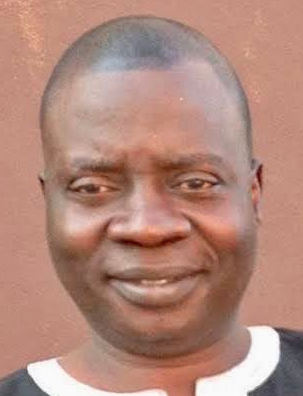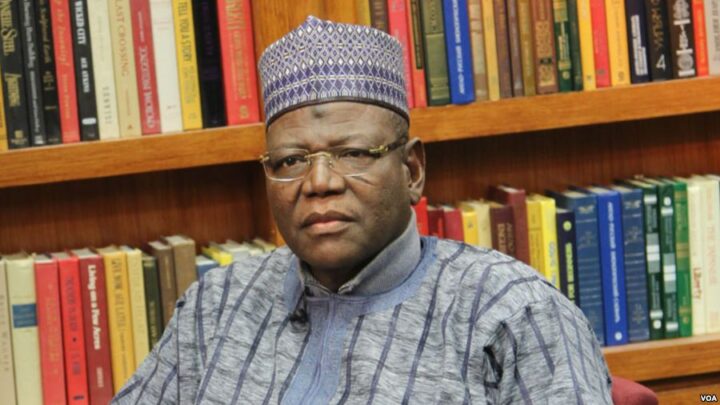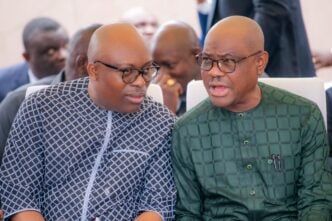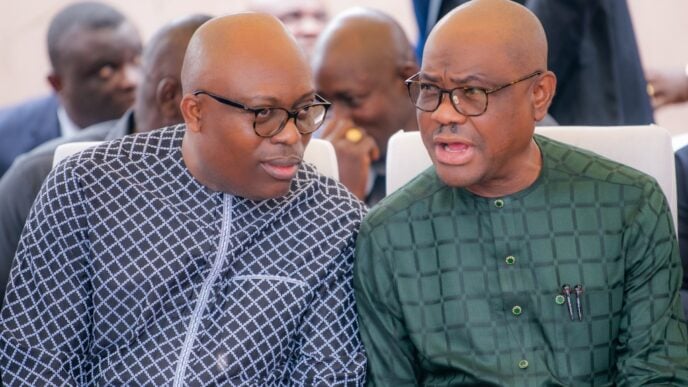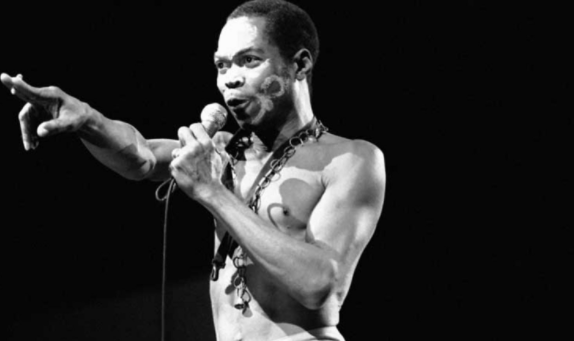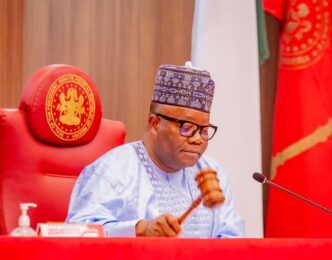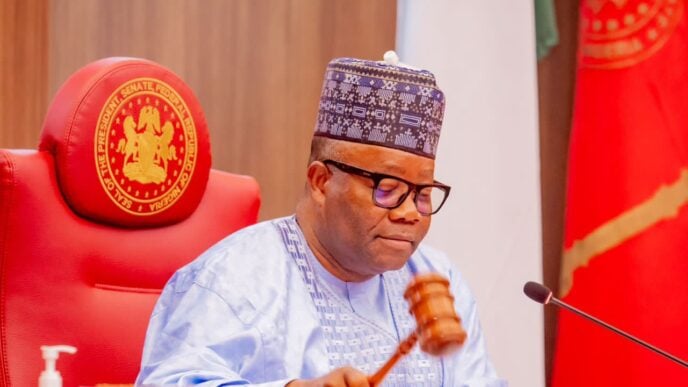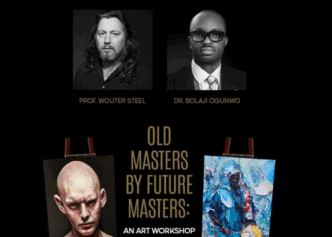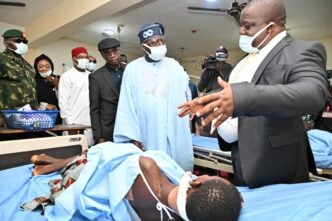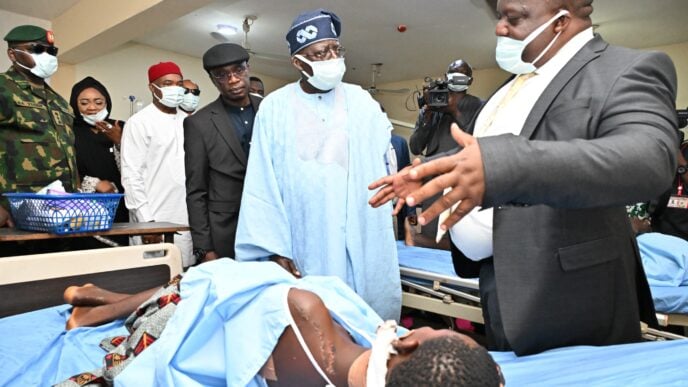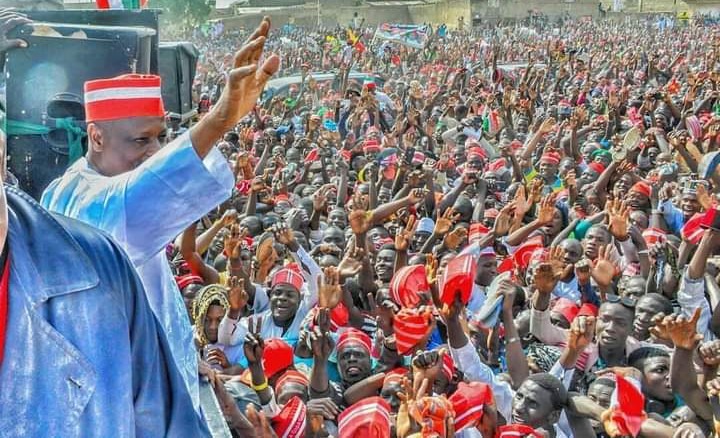One of the worst crimes is to twist and distort history either for personal gains or to make political capital from fraudulent claims about an event that led to the death of so many people.
Both Kola Abiola and former Governor of Jigawa State, Mallam Sule Lamido, literally defecated on the royal stool by their conscious distortion, in our very eyes, the historic June 12 events.
It should be understood that the two men were rabidly anti-June 12. Though one was the son of the winner of the June 12 election, Chief M.K.O Abiola, but from records, he did nothing to support the June 12 struggle. For the two to come up with deliberate lies about the June 12 campaign show their disregard for the memory of Abiola and their contempt for the soul of hundreds of people killed when the battle raged.
The two men used President Bola Tinubu as a peg in assaulting our collective memory.
Advertisement
They misinformed the public about his role during the June 12 campaign and in the process gave a dishonest account of the whole event.
The issue is not their contesting the political space with their adversary, but that they gave false narratives about the June 12 struggle.
This in itself is a malicious assault on all of us that took part either covertly or overtly, in the struggle to free Nigeria from the fetters of iron grip.
Advertisement
If their account goes unchallenged, they certainly might be encouraged to produce best selling dust of lies in their future documented accounts to further polute an epochal event in the history of Nigeria.
First of all, June 12 struggle represented more of the battle to oust a dictator, a clique of villainous, corrupt, backward and retrogressive military pests that had seized Nigeria and that was desperate to rotate power in an endless circle among themselves.
It should be understood that the campaign against military rule began in the mid-1980s. One of the major confrontation against evil being the riot against the Structural Adjustment Programme (SAP) introduced by Gen Ibrahim Babangida. That economic policy emaciated the poor, sapped the pockets of the middle class, attacked the Nigerian industrial base and marked the decline of Nigeria in all frontiers.
It was the beginning of brain drain in all sectors; the academic community, scientists, engineers, students, artisans, and even clergymen all left Nigeria in large numbers. Factories closed down, and job losses came in several digits. Hope was lost, the star of the future dimmed, and darkness began to fall. Nigeria gradually became a patriarchy. Wisdom gave way to brute force. Might became right. Values were assaulted and time-tested heritage of the people dwindled. Dishonesty and fraud came with huge rewards to reflect the image of those in power.
Advertisement
The policies of Babangida also marked upsurge in crime like advanced fee fraud and illicit drug business.
In this dark aisle, the resistance continued driven by the students’ movement led by Emma Ezeazu, Labaran Maku, Nassir Kura, Abdul Mahmud, Joshua Ogadinma, Jiti Ogunye, Sina Loremikan, Comfort Idika, now Mrs Akiode-Afolabi, Omoyele Sowore, Adeola Soetan, Francis Abayomi, Ogaga Ifodowo, Olanrewaju Suraju and others. Labour was emasculated but the progressive section led by John Odah, Chris Uyot, Denja Yaqub, Rotimi Obadofin stood out on the side of the people.
The build-up to the anti military campaign was further accelerated by these radical movements and the progressive forces across Nigeria, mainly students, a section of Labour and the media.
June 12 merely came as an opportunity, an outlet for the progress forces to lean on, to let out bottled up grievances.
Advertisement
I recall two significant milestones that later galvanised the June 12 struggle: The conference that kickstarted the call for a National Conference led by people like Alao Aka Bashorun, Baba Omojola, members of Movement for National Reformation, (MNR), led by Pa Anthony Enahoro, the left led by Prof Tayo Olorode, Femi Falana and others held at the National Theatre in 1990. The military disrupted the gathering, but the effort reawakened Nigerians.
Earlier, there was the summit of the Progressives, Marxists and Labour leaders held in Calabar in 1989. I attended both as a young, revolutionary boy.
Advertisement
There was no coordinated resistance against the military until the formation of a broad coalition of progressive groups under the Campaign for Democracy, (CD) led by Dr Beko Ransome Kuti, Femi Falana, Professor Wole Soyinka, Comrade Ubani Chima and many other radical leaders like Shehu Sani and Uba Sani. People like Gani Adams, Prof Femi Obayori, Rasaq Olokooba stood like a rock so was Kolawole Abiodun who unfortunately died in a car crash with his wife after returning from exile.
The meetings held at the 8, Imaria Street, Anthony, Lagos private home of Beko Ransome Kuti until he was arrested. As a correspondent with The Guardian and member of the CD, I attended almost all the meetings held by the CD. That organisation was responsible for the mass mobilisation of Nigerians against the military and it held by far the most successful campaign against Military rule in Nigerian history.
Advertisement
At a point, the CD ordered Nigerians to stay at home for seven days in defiance of military rule.. The stay-at-home was most successful in the South West and partly successful in some parts of the South-South and the Middle Belt.
The leader of CD, Beko, was later arrested after his home was fire-bombed through one of the windows upstairs. After his arrest, the core of the strategic group moved the cladestine meetings to a private building at Oke Aro in Lagos where Debo Adeniran held forte. I also attended all the meetings held there with people like Sina Loremikan, Ogaga Ifowodo, Luke Aghahenu, Jiti Ogunye, Chima Ubani, now Professor Odion Akhaine, Prof Lucky Akaruese, Chris Nderibe, late Gloria Kilanko, Rotimi Johnson, Abiodun Owonikoko, Segun Sango, Lanre Arogundade among many others. The gathering was made of the finest, upright, dedicated, selfless men and women, of logic, sound mind and clear thoughts. Debates were held exhaustive before final decisions taken. My residence was one of the storehouse where “subversive materials” were kept.
Advertisement
I say boldly that Kola Abiola did not at any time feature in these campaigns. He represented the opposite.
When June 12 came and rallies held, people killed, Kola Abiola made no single statement to condemn the killings. He never visited the home of any of the victims, and in fact, he never condemned the arrests of the CD leaders nor did he pay any solidarity visit to those in detention.
We should then ask what role he played during June 12 campaign? How can someone who stood against the people tell the story of their struggle?
I should know. I was a key actor. Apart from being a Correspondent with The Guardian Newspapers, I was a founding member of Campaign for Democracy, (CD), the United Action for Democracy, (UAD) and the Committee for the Defence of Human Rights, (CDHR) all of which formed the nucleus and the ideological cross bearer of the June 12 struggle.
I speak as someone deeply involved. I attended all the meetings held at the home of Dr Beko Ransom Kuti at 8, Imaria Street, Anthony Village in Lagos. In recall that all efforts made by me to interview Kola Abiola on June 12 failed. He dodged. He was neither courageous nor courteous enough to stand on the side of the people.
In the course of the struggle, I was arrested twice. First by the Directorate of Military Intelligence, (DMI) led by Col Frank Omenka and later arrested at Yaba alongside Comrades Segun Mayegun, Nike Ransome Kuti, Chima Ubani, Tokunbo Afikuyomi, Beko Ransom Kuti and others. The late Chief Gani Fawehinmi was our lawyer. I also had reason to flee the country to Ivory Coast.
So, I speak as a core member of the driving engine behind the June 12 struggle.
Kola Abiola is the son of the late Moshood Kashimawo Abiola but that does not confer on him any authority on June 12 struggle. The person associated with the June 12 struggle in that family was the late Alhaja Kudirat Abiola and to some extent, Dr Doyin Abiola. Hafsat Abiola also inspires millions of Nigerians in her conduct on democratic issues.
It is unfortunate that Kola Abiola by his lies spat on the grave of June 12 martys.
Kola did not know anything about June 12 more than a mechanic at Ladipo who attended the campaigns and strategic meetings to actualise the annulled June 12 election.
In their recent statements on June 12, both Kola Abiola and Mallam Sule Lamido told blatant and irresponsible lies.
Kola Abiola said the current President Bola Tinubu joined the June 12 campaign after he lost out in his bid to become a Minister under the late dictator, Sanni Abacha. He also said Tinubu joined the National Democratic Coalition, (NADECO) after meeting Sani Abacha and that the plan to join Abacha’s cabinet was foiled. As at the time Tinubu alongside met Abacha in November, 1993, there was nothing like NADECO. He was quite on the fact that MKO Abiola was lured into the meeting with a deceitful assumption that he would hand over to Abiola.
He made veiled references as if, apart from Tinubu, the leaders of the June 12 struggle were all opportunistic and sought to work with Abacha. This is a lie, a shameful plot against the truth.
To debunk this fraudulent claim is not to defend Tinubu but to ensure Nigeria avoids revisionism and the substitution of substance with shadow. In a network of orchestrated falsehood, Lamido repeated the same false account. I watched a clip where former Governor of Osun State, Prince Olagunsoye Oyinlola, tried to parrot the same tissue of lies.
The second reason for my intervention is to insist that neither Kola Abiola, Oyinlola nor Sule Lamido is an authority on June 12 and also let the public know that the three were at best saboteurs of June 12 and therefore, opportunistic and self-serving in their shameful pursuit of personal interests during the June 12 struggle.
Kola Abiola and Sule Lamido are not reliable authorities on the political history of Nigeria relating to June 12 so any present or future claims from them should be viewed with suspicion.
At best, they were dubious observers, if not saboteurs, that stood against the aspirations of Nigerian people.
We may infact ask again what role the two played during the June 12 struggle.?
We may ask, how has Kola Abiola sustained the heroic legacy of his father and the June 12 struggle? Where is Concord Newspapers? What of Abiola bookshop? What of Concord Airlines?
Even to upkeep MKO Abiola’s private home is a problem. Visiting the palatial building reminds one of a farm poultry. This is a house that should have been preserved if he, Kola Abiola, understood the meaning of legacy and heroism. Tribune Newspapers since 1948 and all the private and public legacies of the late Chief Obafemi Awolowo stand till this hour.
What has he done to recognise those who fought for June 12, including his own step mother, Alhaja Kudirat Abiola?
Has he ever organised any lecture or important event around June 12 decades after? The answer is no. He is very rich, but that does not make him more responsible or wiser than the rest of us.
During the June 12 struggle, I cannot recollect Kola Abiola making any statement in support of June 12 neither can I recollect him writing any piece or making any statement in support of any humanitarian, popular or utilitarian value all his life.
Sule Lamido was infact excommunicated by the Social Democratic Party, (SDP) for his reactionary role during the June 12 struggle. He was one of those who collaborated with the military.
Memory pricks us that while the June 12 struggle raged and people were being killed on the streets, Kola Abiola made no statement to condemn the killings except that the horizon was saturated with information he was busy in “the other room” with the daughter of the architect of June 12 election annulment.
The June 12 annulment led to the unjust imprisonment or harrassment of people like Baba Omojola, Femi Falana, Chief Gani Fawehinmi, Shehu Sani, Chima Ubani, Omoyele Sowore, Popoola Ajayi,myself and others neither Kola Abiola nor Sule Lamido condemned this horrendous brigandage neither did any one of them visited the victims in their prisons.
But Nigeria is a theatre of the absurd.
How Kola Abiola ended up joining a political party, with a rich tradition of egalitarian culture, even socialist, the Peoples Redeption Party, (PRP) founded by Mallam Aminu Kano and even emerging as the party’s Presidential candidate remains one of the greatest political mysteries in Nigeria.
Saboteurs of June 12 should stop taking over or hijacking the narratives.
There is a Yoruba proverb: If animals are bragging of the strength of their horns, the snail should never join the parade not to talk of being the most boastful.
Views expressed by contributors are strictly personal and not of TheCable.
